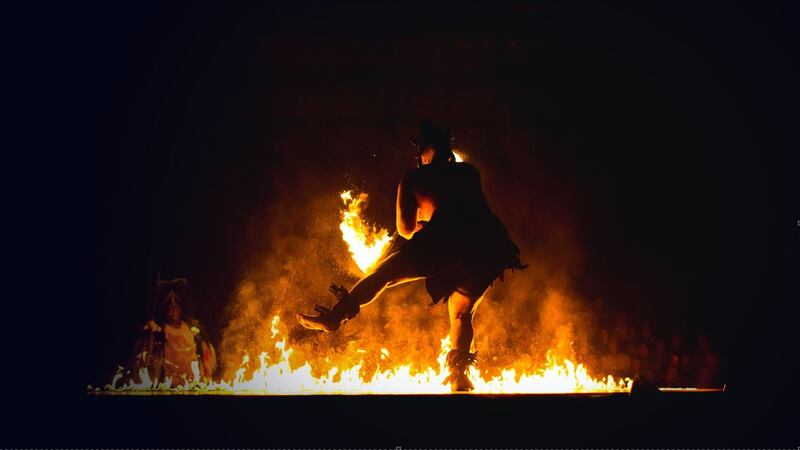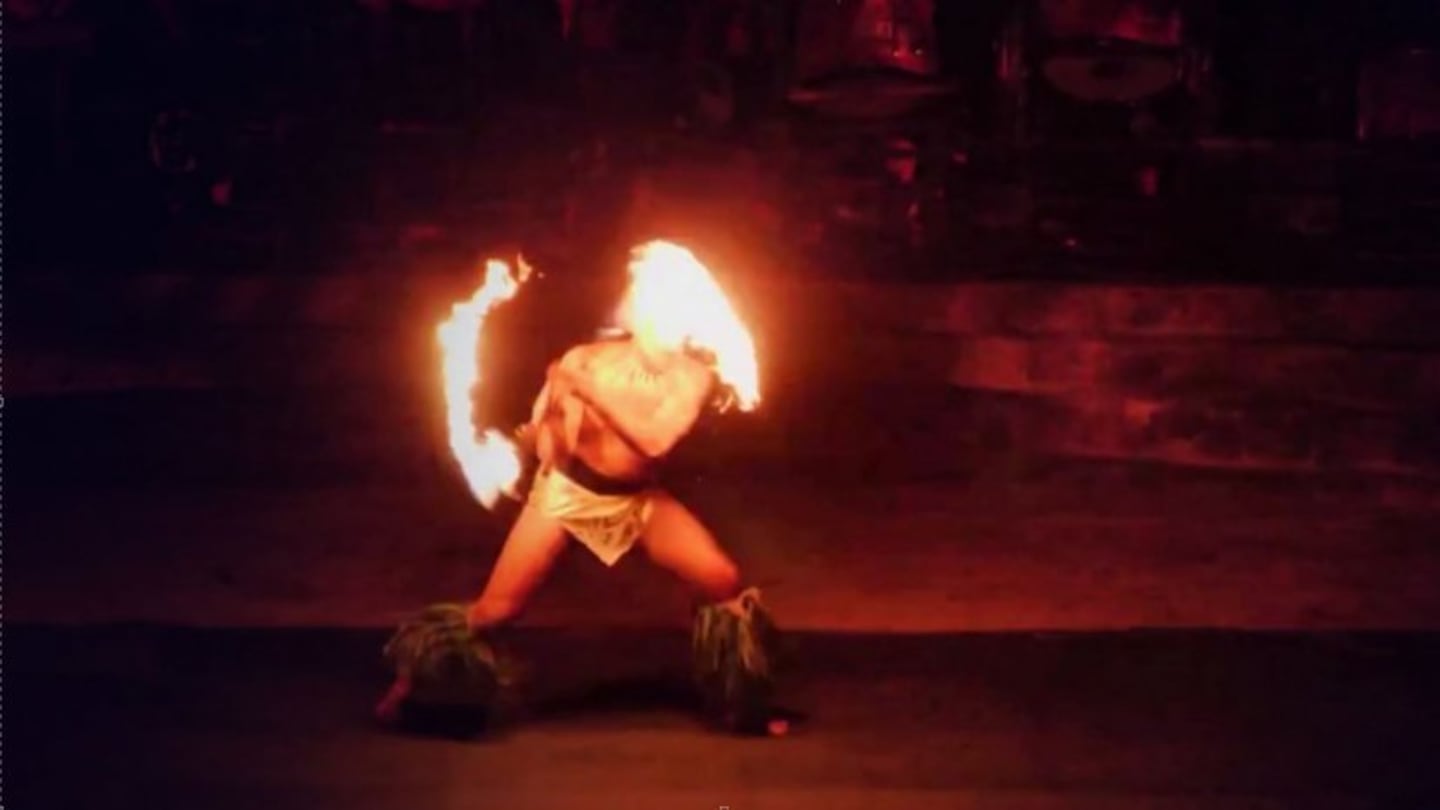Fierce warriors have set a venue on fire (not literally) by competing at the World Fire Knife Championships at Polynesian Cultural Centre in Laie Hawai'i.
This marked its 30th anniversary and featured the return of the women's competition, which had not been held since 2019.
Festival organiser David Galea’i says this year they’re paying tribute to the man who started it all.
“Polefano Galea'i actually created the World Fire Dance Championship and the Siva Ailao. So it's a Siva Afi Championship, which was created 30 years ago.
"Basically, once at the event, we get here together. We get together, we have a prayer together, we measure knives, talk to our warriors and get them hyped up and ready for the stage," he says.
Five women and 31 men competed to see who would be crowned the king and queen of Fire Dancing.
Te Maioha Makekau, born in Rotorua and raised in Laie, is the only Māori competitor and he picked up his fire knife skills in Aotearoa.
"Billy Maia actually taught me how to Siva Afi back in Tokoroa before I moved here, so just that basic stuff, yeah: The vili lua (front spin) and the vili kua (backspin).
"So, when I came here, I already had a little bit of a foundation and the guys in the village kind of saw that. They told me hey, go in the back and put on a lava lava and come back out here and then spin."

Competitors came from all over the world which included Tonga, the Philippines and Japan.
Maioha attributes his success to the secrets passed down to him by previous champions.
“Finding that control because you get on the stage and the adrenaline hits you, the drums hit and it’s easy to just lose control. Your stamina all of a sudden is gone.
"We train all year and then the one show and you can’t even breathe,” he says.
Jeri Galea'i from Hawai'i was crowned the women's champion, with Falaniko Penesa from Samoa taking the men's title.
Winners received US$7000.
Galea’i says this passion of his and other dancers has the potential to be seen on a larger scale.
“To me, it's a sport. We've really turned into a sport because you have obstacles, you have challenges and you have to train. You have to do all the necessary things to be fit so your body can handle the pressure and handle it when you dance onstage.
"So, the big dream is really to be in Olympic status, it's a worldwide sport. We've got to think bigger. Got to dream big, you know?” he says.

